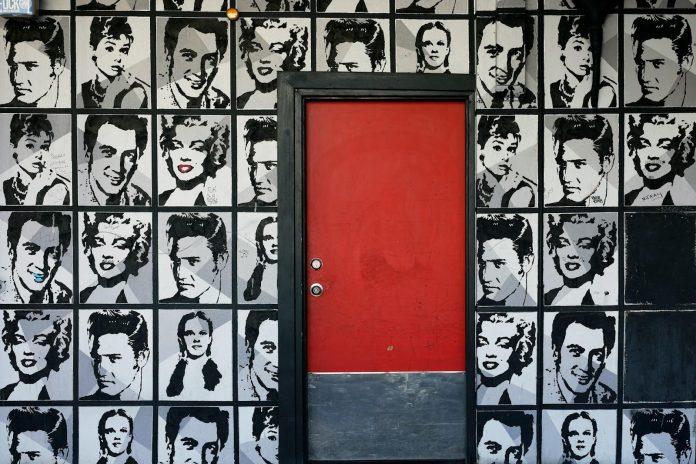Immigrants make up nearly 14% of the U.S. population, but their impact on celebrity culture feels much bigger than that. Flip through a list of top-earning entertainers or the latest Netflix hit, and odds are someone involved didn’t grow up reciting the Pledge of Allegiance.
So, how exactly does immigration influence celebrity wealth and career opportunities in the U.S.? Glad you asked. Let’s dig into the glam, the grind, and the green cards behind the glitz.
1. Hollywood: Built by Immigrants, Fueled by More
You probably know Arnold Schwarzenegger, Charlize Theron, or Rihanna. Megastars with bank accounts that could fund a small nation. What do they all share? They’re immigrants.
Several major film studios, including Paramount and Warner Bros., were founded by immigrants or their children. The tradition never stopped. The U.S. entertainment industry continues to pull talent from every corner of the globe, and it turns out audiences love that global flavor.
Immigrants often bring fresh stories, accents, and styles that help them stand out. They don’t just break in, they blow the doors off.
2. The U.S. as a Launchpad for Global Fame
Making it big globally often means making it big in America first. The U.S. offers infrastructure, visibility, and cold, hard cash that few other countries can match.
Take Salma Hayek. Already a star in Mexico, she exploded into global fame after moving to L.A. and landing roles in blockbusters like Desperado and Frida. Now she’s worth over $200 million.
Or look at BTS. Yes, they’re Korean superstars, but their U.S. success catapulted them into mainstream cultural icons with Grammys, collaborations with American artists, and endorsement deals that probably require their own accountants.
3. Visa Categories Designed for Stardom
The O-1 visa targets individuals with “extraordinary ability” in the arts, entertainment, or science. If you’ve got awards, international press, or adoring fans, this one’s for you.
Then there’s the EB-1 green card, often used by celebrities or high-achieving creatives to gain permanent residence. In short, if you’ve won an Oscar, had your own HBO series, or were the voice of a talking llama in a billion-dollar animated film, you probably qualify.
If that sounds like a maze, you’re not alone. Many celebs turn to pros like immigration expert Brad Bernstein to help them navigate the complexities and avoid the “oops” moments that can delay stardom.
4. More Freedom = More Money
Immigrants who manage to secure permanent residency or citizenship unlock a golden vault of opportunity.
Without immigration hurdles, they can:
- Sign long-term endorsements
- Launch companies
- Buy property
- Earn residuals and royalties without foreign tax complications
Hire teams, tour globally, and invest freely
Priyanka Chopra, after making the jump from Bollywood to Hollywood, snagged a multi-million-dollar deal with Amazon Studios. That kind of long-term play rarely happens when you’re juggling visa renewals like flaming swords.
5. Challenges Still Exist
Let’s not pretend it’s all yachts and champagne. Immigration comes with barriers, even for celebrities. Some stars struggle with:
- Delays: Processing times can stretch for months (or longer). Even rich people can’t fast-track bureaucracy.
- Work limitations: Certain visas tie talent to one employer or contract. That limits creative freedom.
- Political policies: Travel bans or changes in visa categories can leave projects (and careers) hanging by a thread.
Back in 2017, Dev Patel, star of Slumdog Millionaire, reportedly faced delays related to U.S. work authorization. Not ideal when your face is on every movie poster in Times Square.
Sure, the fame helps, but even the biggest stars still play by the same legal rules.
6. Cultural Capital Converts to Financial Capital
Immigrant celebrities don’t just make money in entertainment. They build empires.
Examples? Sure:
- Rihanna (Barbados): Her Fenty Beauty line turned her into a billionaire. U.S. citizenship allows her to run and scale that brand globally.
- Elon Musk (South Africa): Okay, not technically an entertainer, but let’s face it—he’s become a Twitter personality with a Tesla.
- Trevor Noah (South Africa): Leveraged U.S. residency into a massive hosting gig on The Daily Show, followed by stand-up specials, books, and production deals.
The U.S. market doesn’t just pay celebrities, it lets them capitalize on their brand and diversify their wealth across industries, entering the corporate law playground.
7. The American Dream Still Sells
There’s a reason so many international stars aim for the U.S.: the infrastructure, visibility, and cultural obsession with fame fuel an environment where talent can turn into treasure.
Whether it’s Camila Cabello (Cuba), Henry Golding (Malaysia), or Anya Taylor-Joy (Argentina/U.K.), the U.S. gives these stars the space to grow, scale, and, frankly, cash in.
Immigration doesn’t just shape celebrity careers. It transforms the very idea of what American celebrity looks like.
Gone are the days when every superstar looked and sounded the same. Global faces now define American success.
Final Thoughts
Immigration and celebrity might seem like two different worlds, but they collide every day in recording studios, film sets, comedy clubs, and TikTok feeds.
At its best, the U.S. provides a platform for global talent to shine brighter than ever before. Immigration law supports that (sometimes clumsily), and the culture rewards it with opportunities not easily found elsewhere.
So next time you see a celebrity on your screen, ask yourself: What borders did they cross to get there?
